Dogs always seem to be scratching, don’t they?
But what about when they start scratching more than what you think is “normal”?
Maybe they’re constantly shaking their body or trying to rub up against furniture, often appearing uncomfortable or even getting rashes on their skin.
That’s a sign that you might have a problem.
But your vet might simply shrug off the extreme itchiness as allergies.
But is it really allergies?
How can you be sure?
Allergies are often the scapegoat because they can easily explain why your dog is itching 24/7.
The surprising truth is that allergies are fairly rare in dogs, yet dog owners are told their pets have them ALL THE TIME.
I want to focus on the REAL reason behind why most dogs itch.
Itchiness in Dogs: Allergies…Or a Common Canine Gut Health Issue?
Allergies can be confusing, because you might not know how or why your dog is experiencing these symptoms. What is causing the allergic reaction?
The truth is that it might not be allergies at all.
That’s because allergy symptoms can mimic an immune response caused by other factors.
So what you see as allergies (rashes, itchiness, other skin conditions) might actually be caused by inflammation.
And where does inflammation start?
In your dog’s gut.
Inflammation in the gut often leads to inflammation in your dog’s body. Inflammation causes your dog’s immune system to react as if it’s being invaded by a harmful pathogen or allergen.
This immune response (due to poor canine gut health) is what you’re seeing as an itchy pup.
In fact, allergy symptoms often all have connections to gut health.
And allergy remedies like medications or specialty shampoos might mask the problem, but they’re not getting to the root cause of your dog’s itching.
(News Flash: They can even make your canine’s gut health worse!)
So, how can you know what’s going on with your dog? Could it really be just allergies or is your dog experiencing inflammation of the gut?
How to Identify What’s Triggering Your Dog’s Itch
Determining the cause of your dog’s itchiness can be a challenge, especially when it seems like allergy treatments are working.
But those treatments will only provide temporary relief for your dog.
As soon as you stop those treatments, chances are that itchiness and all the other symptoms will just come right back.
That’s because canine gut health is tied to your dog’s overall health. With poor gut health comes a wide range of common conditions like chronic diseases, weight issues, digestive problems and…
…you guessed it…
ALLERGIES!
This happens because toxins found in food or other things your dog might ingest need to be released. And when organs like the digestive tract have difficulty releasing those toxins, the largest organ in the body – the skin – will try to do it for your dog.
That’s why digestive issues and poor gut health cause symptoms that LOOK like allergies, but they’re actually not.
Now, don’t get me wrong, some dogs do actually have allergies. Your vet can do blood tests to check for environmental or food allergies your dog might be experiencing.
But more times than not, symptoms of allergies like itchiness are caused by a general inflammation that relates to poor gut health.
So until you address the actual cause of your dog’s itchiness…their gut…you are only masking the symptoms.
What You Can Do to Help Treat Poor Canine Gut Health and Prevent Itchiness
The only way to heal the inflammation and improve your dog’s gut health is through diet.
If you’re feeding your dog kibble, you’re introducing toxic substances into their system that they just aren’t exposed to when they eat real food.
That’s why I’ve become a true believer of the raw dog food diet.
But, Doggy Dan, I’ve been feeding my dog processed kibble for years. Why is it an issue now?
The truth is that kibble has never been good for your dog. That’s because it’s made up of processed ingredients and is not highly digestible.
Even the “premium” brands of kibble aren’t the healthiest option for your four-legged friend.
That’s why I am a huge supporter of the raw dog diet, which includes organ meats, muscle meats, whole or ground bone, raw eggs, and dog-friendly fruits and vegetables. Some dairy products like yogurt can also be included.
These foods are easily digestible by dogs!
And a raw diet removes a lot of the artificial allergens that might have been introduced to the kibble you’ve been feeding your pup.
When you take away all of those ingredients, your dog’s gut health, and their overall health, will improve!
Want to learn more about the raw dog food diet? Read one of my recent blog posts that goes into detail about the raw dog food diet and how you can start it for your pup.
For even more information about the raw dog food diet, check out my podcast, where I interview experts in the field so you can learn more about what’s best for your dog.
Search Results for: podcast raw food
So when you see your dog scratching and rubbing on anything and everything, it might be time to start looking at their diet.
The key to relieving your dog’s itchiness is to get to the root cause of their immune response and improve their gut health.
Here’s to an itch-free future,
~ Doggy Dan


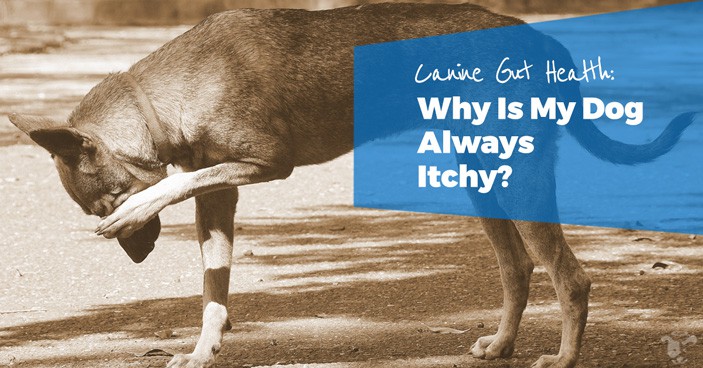
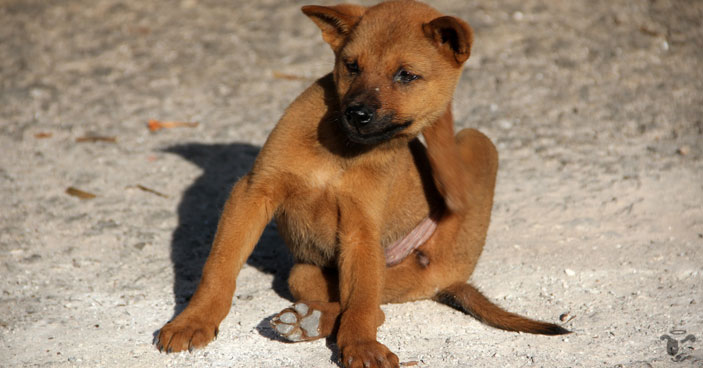
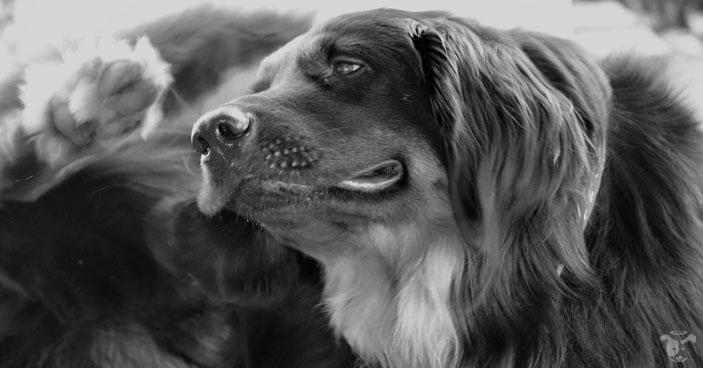
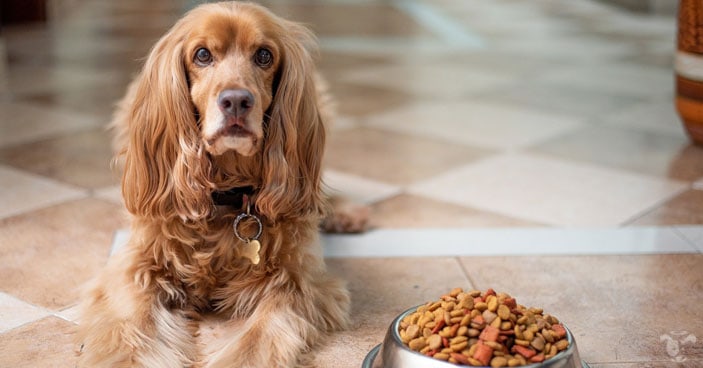





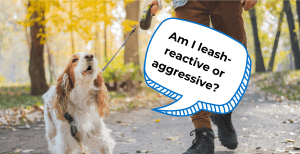
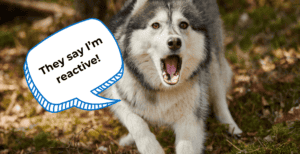
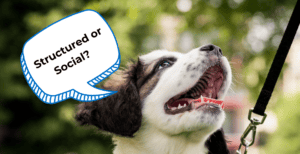
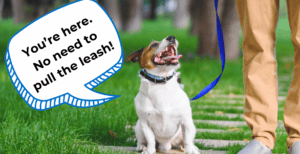

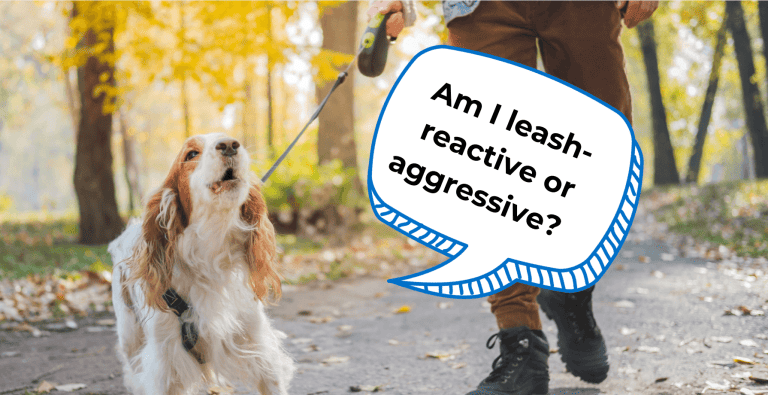
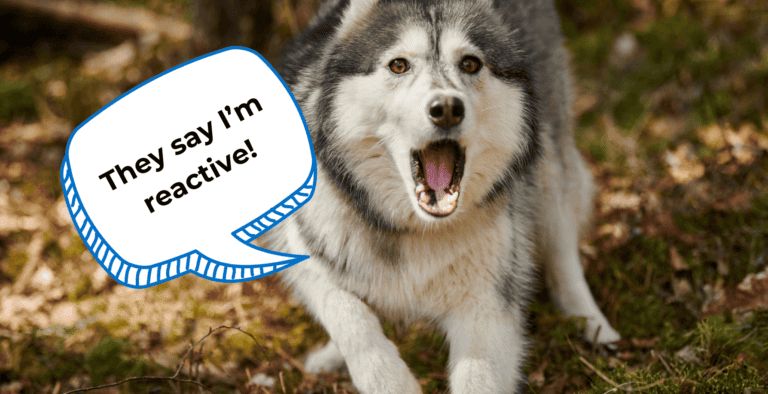

4 Responses
My Frenchie has had three bouts of haemorrhages gastroenteritis. She has had many antibiotics in her life because of her skin. We are very keen to hear any advice on how to prevent this from reoccurring
Hi Diana,
Seeing your dog go through all of that is really tough. There is a wealth of information regarding Gut Health, and how to improve it, available these days. Hopefully you can find something that makes all the difference for your Frenchie. All the Best, Doggy Dan
My dog has been scratching and chewing her feet for 3 years! She’s had every test, all kinds of medication. She’s seen a dermatology vet and even had acupuncture, but nothing has worked! All the vets think it might be a behavior issue. Unfortunately, there are no behavior experts in Tucson. Any ideas or suggestions?
Hi Vivian,
If your dog chews herself when she is separated from you then it may be a sign of Separation Anxiety, however if there is no medical reason for her behaviour then it is likely related to anxiety/stress. My website TheOnlineDogTrainer.com shows covers both behavioural issues, but more importantly it shows you very clearly how to overcome them. Maybe take a quick look…its a $1USD trial for 3 days. All the Best, Doggy Dan